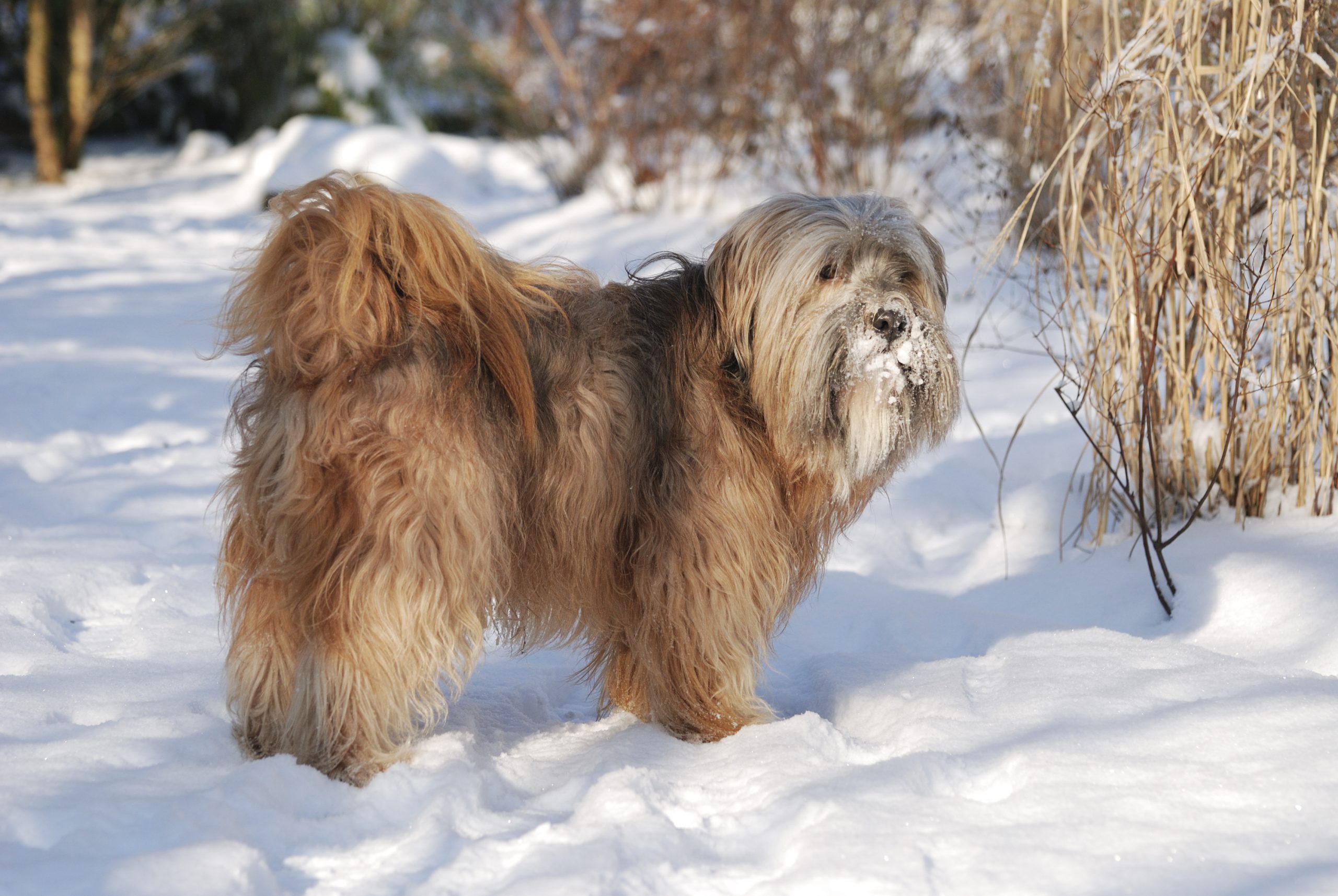Tibetan Terrier
No products found which match your selection.
Shelter Dog Meal Donation Count:
No products found which match your selection.
This breed is a great companion for those who can commit to their grooming and exercise needs, and they thrive in a loving, interactive family environment.
Tibetan Terriers are versatile, and able to adapt to various climates and situations. Their history as monastery dogs in Tibet means they are comfortable both in solitude and in the company of others. They are not known for being barkers, but they will alert their families to anything unusual.

The Tibetan Terrier, bred by Tibetan monks over 2000 years ago, served as a companion and symbol of fortune. Misnamed as terriers due to their size, these dogs were isolated until the early 20th century. Dr. Agnes Greig’s introduction of the breed to the West led to worldwide recognition and popularity.




Generally robust, but watch for genetic conditions like hip dysplasia, eye disorders, and certain allergies. Regular vet check-ups are essential to monitor their health.
Their long, thick coat requires frequent grooming. Daily brushing is recommended to prevent matting. Regular bathing, nail trimming, and ear cleaning are also necessary.
Requires moderate exercise. Daily walks and playtime are sufficient. They enjoy activities that stimulate both their mind and body.
Respond well to positive reinforcement techniques. Early socialization and obedience training are important.
Balanced diet suited to their age, size, and activity level. Consult with a veterinarian for dietary recommendations.
Owning a Tibetan Terrier is a rewarding experience. These dogs are not just pets but become beloved members of the family. Their unique history, combined with their loving and adaptable nature, makes them an excellent choice for many households.
Tibetan Terriers are generally healthy dogs but, like all breeds, they are prone to certain health conditions. Being aware of these common issues can help in early detection and management.
Regular veterinary check-ups and monitoring are crucial for maintaining the health of a Tibetan Terrier. Early detection and management of these conditions can greatly improve the quality of life for these dogs. It's also important for potential owners to obtain their pets from reputable breeders who conduct health screenings on their breeding dogs.
The iHeartDogs Free Rx Discount Card Program is a pet prescription discount card that can help you save money on your furry friend’s medications. The card is free to sign up for, and you can use it at participating pharmacies nationwide. To use the free program, simply show the card to your pharmacist when you pick up your pet’s prescription. The pharmacist will then scan the card, and you will receive a discount on the price of the medication.LEARN MORE
The annual cost of caring for a Tibetan Terrier, or any dog, varies based on several factors, including your location, the dog’s health, and the level of care and amenities you choose to provide. Here’s a breakdown of the typical expenses:
Total Estimated Annual Cost:
$2790 - $7420
It's important to note that these figures are estimates and can vary. Also, the first year of owning a dog can be more expensive due to one-time costs like spaying/neutering, initial vaccinations, and training. Regular budgeting for your dog's needs and an emergency fund for unforeseen costs are essential for responsible pet ownership.
We rely on ads to keep creating quality content for you to enjoy for free.
Please support our site by disabling your ad blocker.
Continue without supporting us
If the prompt is still appearing, please disable any tools or services you are using that block internet ads (e.g. DNS Servers).